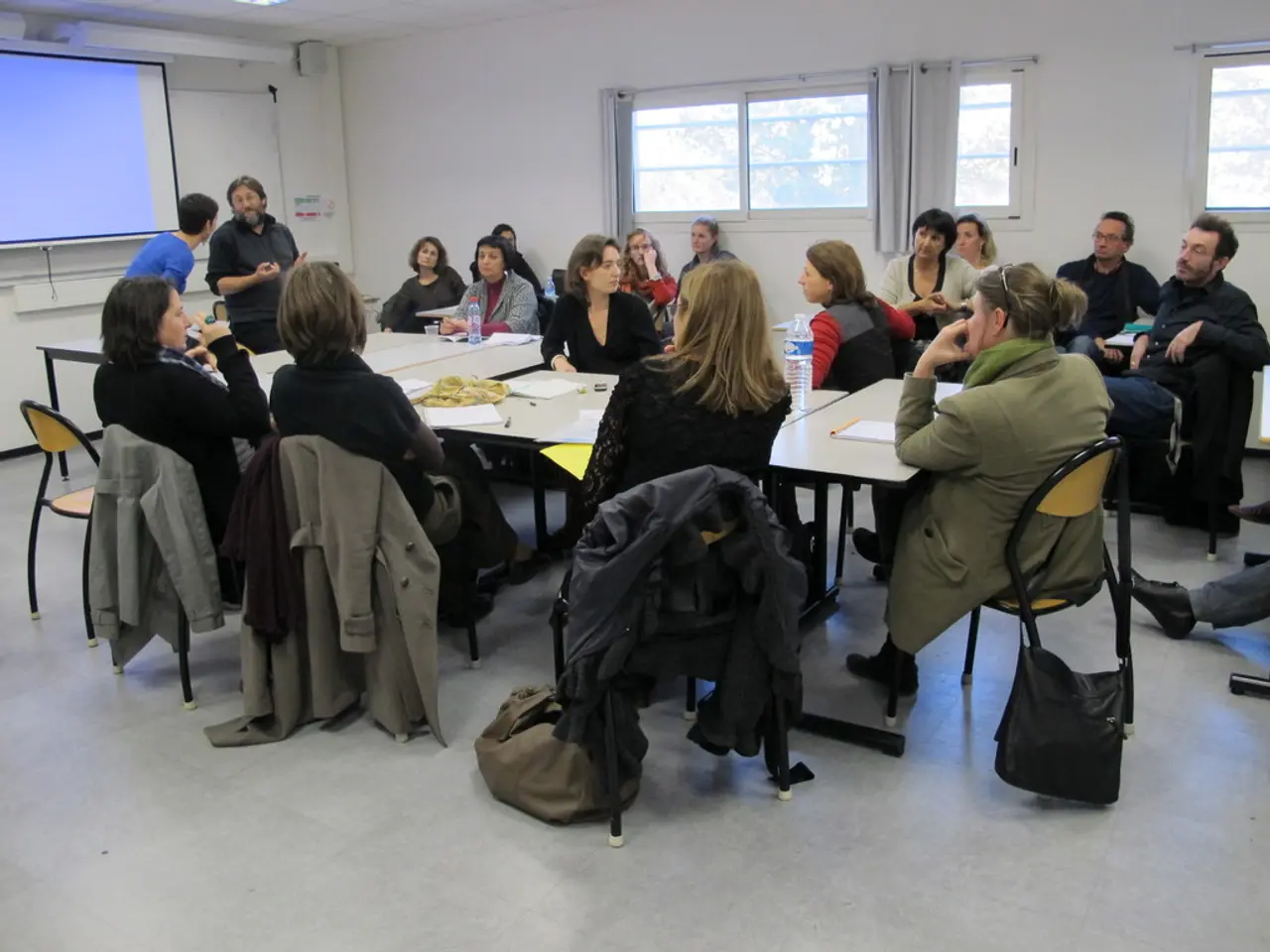Struggles of Solitude: Coping with Loneliness and Social Detachment
In the face of social isolation, it's not uncommon to feel like a lone figure in a crowded room. The ache of disconnection can linger, leaving us yearning for meaningful connections and understanding. However, there are effective strategies to help alleviate these feelings and foster a sense of connection.
Embracing Self-Compassion
Self-compassion plays a critical role in navigating feelings of loneliness and isolation. By showing kindness and understanding towards oneself, individuals can accept and embrace alone time, reducing the intensity of loneliness. Practices such as meditation, mindful walks, physical activity, journaling, and self-reflection can help strengthen the relationship with oneself, providing a foundation for emotional well-being [1][3][5].
Leveraging Technology for Connection
Embracing technology as a means for fostering connections is essential in combating feelings of loneliness and isolation. Utilizing video calls, social media platforms, messaging apps, online communities, and virtual support groups can help maintain relationships and stay connected with loved ones, especially during times of physical distancing [4].
However, it's important to balance digital interactions with face-to-face or meaningful conversations to build strong relationships and prevent excessive virtual isolation.
Seeking Support and Community
Support groups, whether in-person or virtual, provide safe spaces for sharing feelings, gaining validation, and reducing isolation. They encourage vulnerability and emotional safety, enabling participants to rebuild emotional connections gradually [2]. Professional support, including therapy, can also assist by addressing deeper emotional challenges and teaching personalized coping skills [2][4].
Establishing Daily Routines
Daily routines enhance stability and mental health by incorporating activities like yoga, meditation, or tai chi, which foster mindfulness and emotional regulation. Setting small, achievable goals for social interaction—such as initiating a conversation or sharing feelings—builds resilience and promotes reconnection with others [1][2].
In summary, combining these approaches—compassionate self-care, mindful use of technology, participation in supportive communities, and structured daily habits—can effectively mitigate feelings of loneliness and isolation caused by separation [1][2][3][4][5].
Remember, seeking emotional connection by joining online communities, helplines, or virtual support groups can provide valuable assistance and connections with others facing similar struggles. Utilizing professional help, such as therapists, counselors, psychologists, or psychiatrists, is essential for finding support and coping strategies.
To fight loneliness and isolation, focus on self-care, staying connected with loved ones, trying new hobbies, seeking therapy or support groups, and setting boundaries with toxic relationships. By implementing these strategies, you can navigate the challenges of social isolation and foster a sense of connection and understanding.
References:
[1] British Psychological Society. (2020). Coping with loneliness and isolation during the COVID-19 pandemic. Retrieved from https://www.bps.org.uk/news-and-policy/coping-loneliness-and-isolation-during-covid-19-pandemic
[2] Mental Health America. (2020). Social isolation and mental health. Retrieved from https://www.mhanational.org/issues/social-isolation-and-mental-health
[3] National Institute of Mental Health. (2020). Loneliness and social isolation. Retrieved from https://www.nimh.nih.gov/health/topics/loneliness-and-social-isolation/index.shtml
[4] Psychology Today. (2020). The impact of social isolation on mental health. Retrieved from https://www.psychologytoday.com/us/blog/the-power-now/202003/the-impact-social-isolation-mental-health
[5] University of California, Berkeley. (2020). Loneliness and social isolation: How to cope. Retrieved from https://greatergood.berkeley.edu/article/item/loneliness_and_social_isolation_how_to_cope
- Practicing mindfulness, through meditation or mindful walks, can foster emotional well-being and strengthen the relationship with oneself, which is crucial in navigating feelings of loneliness and isolation.
- Apart from digital interactions, establishing meaningful face-to-face conversations is essential for building strong relationships and preventing excessive virtual isolation, especially in maintaining health-and-wellness and mental-health.
- Seeking out support groups, whether online or in-person, can provide safe spaces for individuals to share their feelings, gain validation, and work on rebuilding emotional connections, enhancing their relationships and overall lifestyle.




